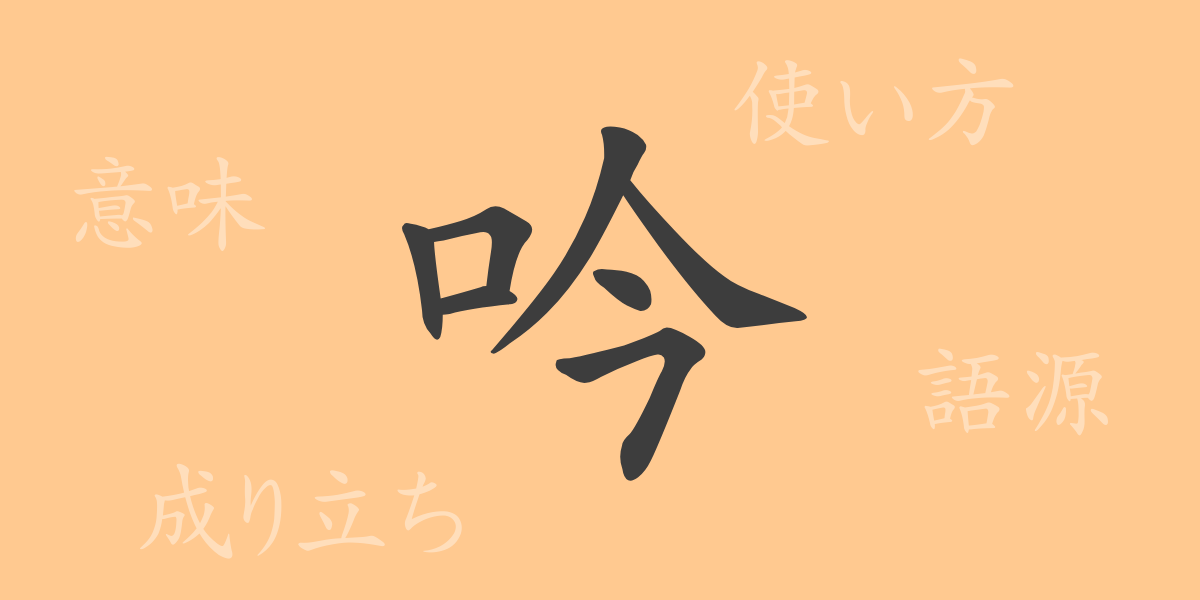The meanings and nuances carried by a single kanji character reflect Japan’s rich culture and history. The character “吟(ぎん)” is a unique presence that expresses the emotion of reciting poems or songs. In this article, we will delve into the charm of the commonly used kanji “吟(ぎん)” by exploring its origins, uses, meanings, and related idioms and expressions.
Origin of 吟(ぎん) (Etymology)
The character “吟(ぎん)” has been used since ancient China to depict the act of reciting poetry. The kanji comprises the radical “口(くち),” indicating a connection to speech or verbal actions. The component “今” originates from the ancient character “斤,” which resembled an axe and originally meant “to carve sounds.” Therefore, “吟(ぎん)” encapsulates the act of beautifully expressing poetry aloud, emphasizing the significance of reciting poems with emotion.
Meanings and Uses of 吟(ぎん)
“吟(ぎん)” refers to the act of reciting poetry or songs aloud, especially with emotion and care. This character embodies the Japanese culture of treating words with reverence and expressing them beautifully. The term is also used in phrases like “吟味(ぎんみ)する,” meaning to consider something carefully. Additionally, “吟(ぎん)じる” is used in contemporary Japanese to denote the direct act of reciting poetry or songs.
Readings, Stroke Count, and Radical of 吟(ぎん)
The kanji “吟(ぎん)” holds cultural significance in its form and sound.
- Readings: On’yomi (Chinese reading) – ぎん, Kun’yomi (Japanese reading) – none
- Stroke count: 7 strokes
- Radical: 口(くちへん), related to speech
Idioms, Phrases, and Proverbs Using 吟(ぎん)
Idioms and phrases incorporating “吟(ぎん)” reflect the delicacy of handling words and the act of deep contemplation. For example, “吟味(ぎんみ)” means to consider something thoroughly, while “吟遊詩人(ぎんゆうしじん)” refers to a medieval European troubadour who travels while performing poetry or songs. The phrase “吟風弄月(ぎんぷうろうげつ)” means to enjoy or recite the beauty of nature.
Conclusion on 吟(ぎん)
The kanji “吟(ぎん)” symbolizes the emotion of reciting poetry or songs and the attitude of deep contemplation. This character has played an important role in Japanese culture, appearing in various idioms and expressions to convey the beauty of words. Remembering the meaning of “吟(ぎん)” can enhance poetic expression and thoughtful attitudes. Through this article, we have seen how indispensable “吟(ぎん)” is in conveying the elegance of language in Japanese culture.

























